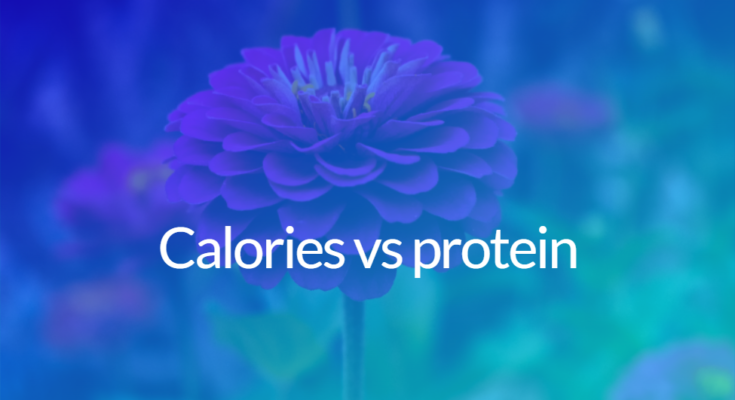Introduction:
In the world of nutrition and fitness, two important components that are often discussed are calories and protein. Both play a crucial role in maintaining a healthy and balanced diet, but they have different functions and effects on our bodies. Understanding the difference between calories and protein is essential in making informed choices about our diet and overall well-being.
Difference between calories and protein in a tabular format:
| Aspect | Calories | Protein |
|---|---|---|
| Definition | Calories are a unit of measurement for energy obtained from consuming food and beverages. It measures the energy content of food. | Protein is a macronutrient made up of amino acids that are essential for growth, repair, and maintenance of body tissues. |
| Function | Calories provide energy for the body to perform various physical and metabolic activities. | Protein is responsible for building, repairing, and maintaining tissues, muscles, organs, and enzymes. |
| Dietary Sources | Calories are obtained from consuming carbohydrates, proteins, and fats. | Protein is primarily found in animal and plant sources such as meat, poultry, fish, dairy products, legumes, nuts, and seeds. |
| Measurement | Calories are measured in units called kilocalories (kcal) or calories (cal). | Protein is measured in grams (g). |
| Energy Value | 1 gram of carbohydrates or protein provides approximately 4 calories. | Protein also provides approximately 4 calories per gram. |
| Effects on the Body | Consuming excess calories without burning them off can lead to weight gain and various health issues, including obesity and chronic diseases. | Protein plays a vital role in muscle building, weight management, satiety, and overall health. It aids in muscle recovery after exercise and helps with maintaining a healthy weight. |
| Recommended Intake | The recommended calorie intake varies depending on age, sex, weight, activity level, and goals. However, it is generally recommended to consume an appropriate amount of calories to meet energy needs without exceeding them. | The recommended protein intake also varies based on factors such as age, sex, weight, activity level, and overall health. However, a general guideline is to consume around 0.8 grams of protein per kilogram of body weight. |
Conclusion:
Calories and protein are fundamental elements in our diet, but they have distinct roles and effects on our bodies. While calories provide energy for our daily activities, consuming an excess of calories can lead to weight gain and health issues. On the other hand, protein is essential for building and repairing tissues, muscle growth, and overall well-being. It is important to maintain a balance and make wise choices regarding calorie and protein intake to support a healthy and active lifestyle.



